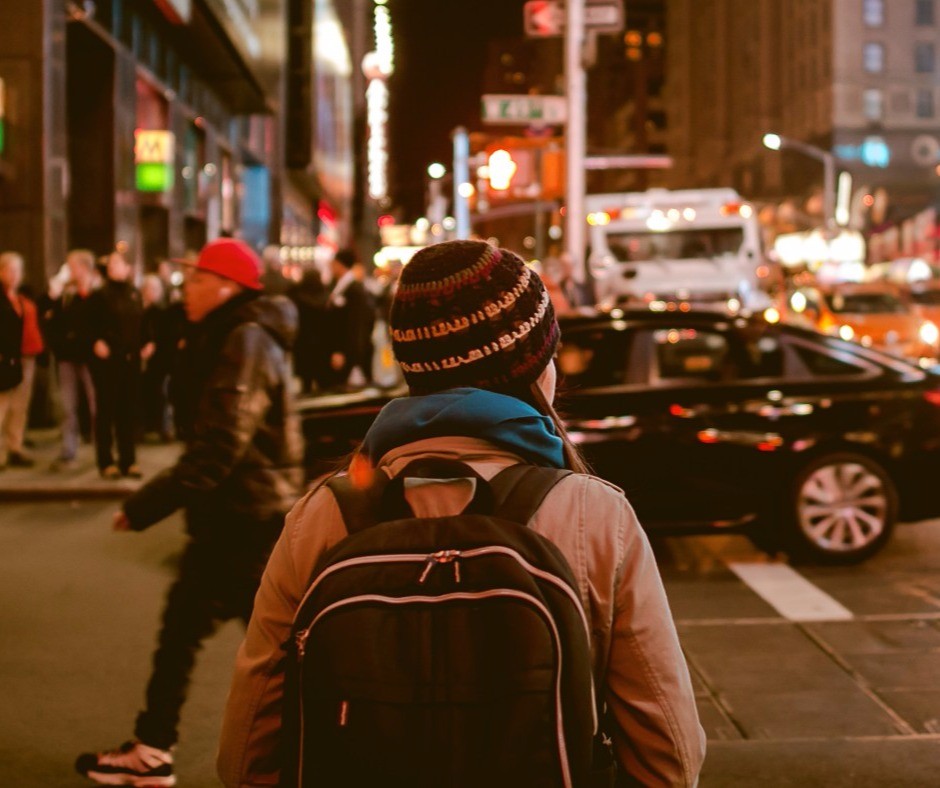“Racism is the most common sin in the world.” -Rick Warren
On my thirty-fifth birthday, I made the front page. “Good Samaritan injured in carjacking.”
Accompanying the headline were two faces drawn by a police sketch artist based on my recall of the previous day’s attack. Two boys, late teens, Hispanic. One’s face broad; the other’s long and oval, with a torn, bleeding ear.
He’d injured it when they lost control of a stolen car on our winding country road and crashed into a eucalyptus tree. First on the scene, I’d pulled over to offer help. Next thing I knew, I was balled up on the ground, covering my head while they kicked me repeatedly. When they sped off in my SUV, I reoriented myself. You’re smack in the middle of the road, on a blind turn. Get up now.
Police investigations never yielded an arrest. And many months later, living and working and grocery shopping in a city with a Hispanic majority, I still carried a sense of imminent danger. And it owned me.
Which led to the afternoon I fled the sandwich line at Subway after noticing two teens ahead of me, who only kinda-sorta resembled my attackers. It’s not them. Those are good boys. Somebody’s babies. But terror won. I couldn’t stay.
I’d been born in the sixties amid a blazing inferno of racial tension. While segregation experiments led to unrest, riots turned violent, and MLK Jr. rallied, my parents purchased a tiny stucco house in a multi-ethnic California neighborhood. On purpose. To raise their three WASP toddlers to regard people of different skin colors, religions, and cultures as neighbors and friends.
Like the old Serbian couple next door, Mr. and Mrs. Gopcevic, who grew a garden so tall and enchanting I imagined the Tales of Peter Rabbit set among their cabbages and calla lillies. Like Cedric, the African-American boy three doors up, whose sunny smile could burn the fog right off the Monterey Bay. In a group photo from Cedric’s sixth birthday party, my round vanilla face stands out among my chocolate-skinned peers.
Like my early besties, Syrie from Thailand and Nilifur from Turkey. Down the street at my Japanese friend’s home, I watched fat orange koi swim in a pond, slid tatami doors, and tried strange foods. And in the elementary-school romance department, a Cuban boy named Emilio was the first to turn my sister’s blonde head. Meanwhile, I first-crushed on an Italian kid with an amazing number of vowels in his last name, Peter something-something-something-ee-o.
We cut our teeth on books about people of color, like A Snowy Day. In 1968, when Ezra Jack Keats made an appearance at our public library to promote the release of Peter’s Chair, we were there. My father, a college dean of vocational education, headed up Monterey County’s anti-poverty council and worked to provide minorities with job training.
But then came our family trip to my mother’s hometown on the east coast, where I met one of my aunts in person for the first time. She warned me, “Honey, if you see a n-word, walk on the opposite side of the street” and lamented the scourge of blacks who’d overrun their old neighborhood. Mom cringed. And at the age of thirteen I began to understand the significance of my parents’ choices.
By all accounts, Mom’s and Dad’s experiment worked. My sister married into a first-generation Mexican-American family, and our lives are richer for it. And I know to reject thinking my ethnicity makes me somehow better. God didn’t create a world of white people. We do that.
God never compares that which he creates. -Bob Goff
So when I fled Subway that day, it was with a toxic lack of peace—heart thumping, hands shaking on the wheel. Clearly, as long as I was profiling, suspecting, and avoiding, I wasn’t loving. As in God’s Big Idea: loving him and others. (Matthew 26:32–40; John 15:12). Terror had taken me out of the game. So I tried again to talk to God, this time inching right up to the edge of the canyon I’d dug between him and me. I screamed across.
Lord, I’ve been relying on my fear to protect me instead of you. But I don’t know if I’m ready to trust.
I pulled off at the next exit, parked in a dirt turnout, and cried out from the guts of my soul. Help! Father, forgive my distrust. Heal my wreckage. I can’t tell who’s safe and who’s not. I see only outward appearances, but you look at the heart (1 Samuel 16:7). Show me again how to see others through God-eyes.
In a transaction I still don’t comprehend, there in that dirt patch not far from where I was attacked, my fears evaporated, never to return. I was free. And I remain free nearly two decades later.
So it’s excruciating when today’s headlines reveal how far our country hasn’t come. Worse, I’m ashamed by how disinterested and out of touch I’ve become over time, living now in a placid, not-so-diverse rural community. Guess I’ve had my head buried in the high-desert sand.
Whether it’s apathy or blatant racism, there’s still a whole lot of ugly in our hearts. Mine included.
It occurs to me that those of us attempting to follow Jesus ought to be most offended, most repentant, and most determined to reconcile with God and each other. In a kingdom where the royal law of the land is Love Your Neighbor, there’s no place for discrimination or even a hint of favoritism (James 2:8-9).
I often say I received healing on the side of the road years ago. And it’s true. But it was began with a choice—to yield, to invite the Spirit of God to lead me. So how can we know where he wants to lead us in this? If all Scripture is God-breathed, meaning by his Spirit (2 Timothy 3:16), it follows that the trail markers found in the Bible are for you and me.
Which means we can’t get off simply treating everyone as equals and calling it good. Not even close. We’re to humbly regard others as more important than ourselves (Phil 2:3), just as Jesus did. We think we love others because we condemn hate. But most of the time, the absence of love isn’t hate. It’s disregard.
God doesn’t call us to be colorblind either. We often say “I don’t see color” as if that’s a good thing. Yet he delights in the variety he created. When we do the same, it honors him.
So let’s cry out. Let’s bury our faces in the dusty hem of Jesus’ robe and beg forgiveness. Where sorrow and gut-deep repentance cut us to the quick, that’s the place where Jesus applies his grace balm, nutrients for the miraculous: growth into Christ-likeness.
Let’s ask for new eyes and courageous hearts. It isn’t enough to vow to be the change. Love isn’t a matter of the will, but of the heart. Left to ourselves, we’ll keep detouring around those different from us. Let’s follow Jesus into the discomfort zone. Reach across our communities and churches to interact with people we normally don’t.
Let’s become better listeners in a spirit of understanding and peace, dedicated to hearing what those of other races and experiences have to say.
And let’s make a point to teach our kids about the joys of diversity and our God-given role on earth: We’re to be his peacemakers. We’re to raise our children as peacemakers.
We are the antidote to racism in all its forms.
Hallelujah.





Wow, Kit. A powerful testimony. Thank you for this story. Your parents’ choices challenge me to step out of my comfort zone and try to make similar choices. Your story challenges me to love, even in the hard places. Thank you.
Thank you, Laura. Lately I’ve been thinking about how many of the best things follow (even small, seemingly insignificant) acts of bravery. So I’ll keep praying for more courage. Thanks for reading and sharing your thoughts 🙂
Well said, Kit! I grew up in the South at the beginning of desegregation, so grateful God led me away from racism to respect for others.
Wow, Robin, you must have seen (and heard) a lot as a child that was hard to make sense of. Thanks for commenting!